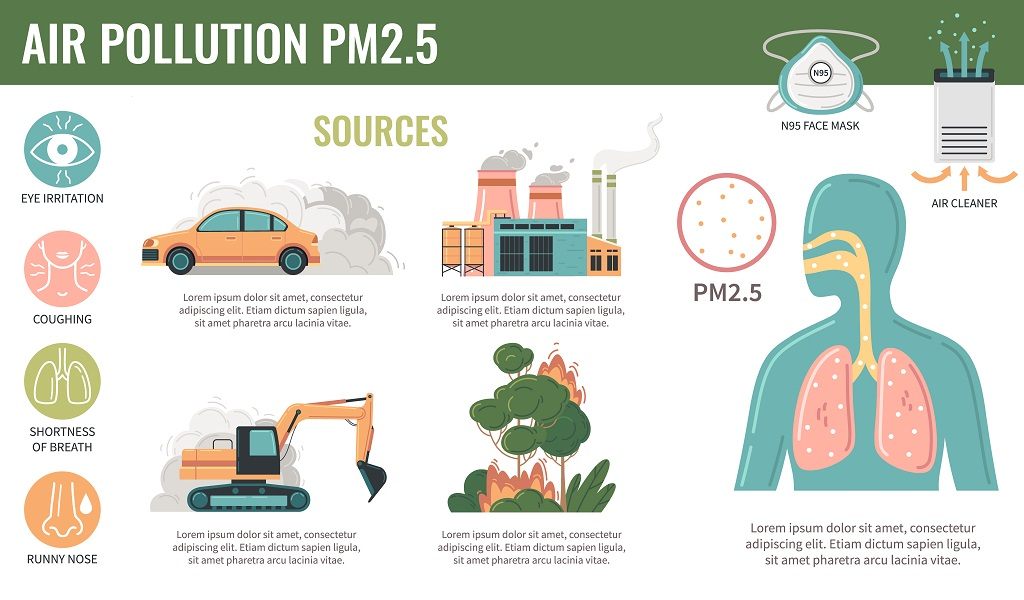Air pollution refers to the presence of harmful particles, particularly fine particulate matter (PM2.5), in the air we breathe. It is a serious concern for our health and well-being. How long can air pollution reduces life expectancy? A latest study from the Energy Policy Institute at the University of Chicago (EPIC) gave the answer.
The link between air pollution and life expectancy
The research showed that air pollution is the No.1 external threat to human life expectancy worldwide. According to the latest Air Quality Life Index (AQLI) report, the impact of PM2.5 on global life expectancy is 2.3 years, exceeding that of smoking, which is 2.2 years. It is more than three times the impact of alcohol use and unsafe water, over five times the impact of transport injuries like car crashes, and more than seven times the impact of HIV/AIDS.
Air pollution’s impact around the world
Air pollution is especially concerning in Asia and Africa. These regions face significant challenges due to pollution, impacting the health of millions of people. Countries like India, Bangladesh, and Nepal are among the most affected, with residents losing an average of five years of life expectancy due to pollution.
Air pollution is not limited to Asia and Africa. Places such as California in the US, Canada and other nations face significant challenges due to pollution from wildfires, affecting the health and life expectancy of their residents. Similarly, eastern European countries experience higher pollution levels compared to their western counterparts, leading to shorter lifespans.
The urgent need for action
To address air pollution effectively, we need infrastructure and policies in place. Unfortunately, many countries in Asia and Africa lack the necessary resources and standards to combat this problem. Open access to air quality data and the establishment of air quality standards are crucial steps towards finding solutions.
It’s important to address the inequality in combating air pollution. While funds are available for diseases like HIV/AIDS and malaria, there is a lack of dedicated resources for air pollution. This disparity hinders progress, particularly in Africa and Asia, where funding for pollution initiatives is significantly lower compared to regions like Europe and North America.
Stricter standards for cleaner air
Efforts to combat air pollution include the proposal of stricter standards. For example, the U.S. Environmental Protection Agency aims to lower the PM2.5 standard, which could potentially lead to 3.2 million gained life years for affected counties. Similarly, the European Commission has proposed stricter pollution standards for the European Union, with the potential for 80.3 million additional life years if the proposed standard is met.
In conclusion, air pollution has a significant impact on our health and life expectancy. It affects regions worldwide. To address this issue, we must prioritize infrastructure development, implement effective policies, and allocate adequate resources. By working together, we can improve air quality, protect our health, and increase life expectancy for people around the globe.
Image by macrovector on Freepik
